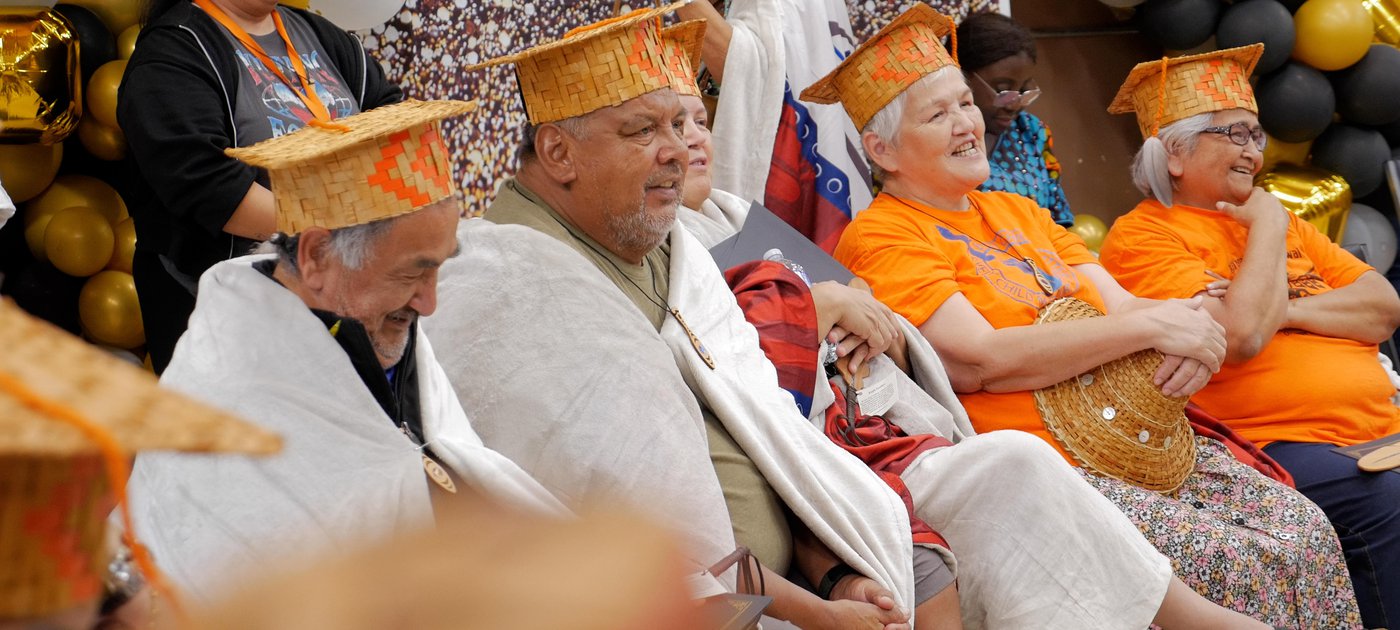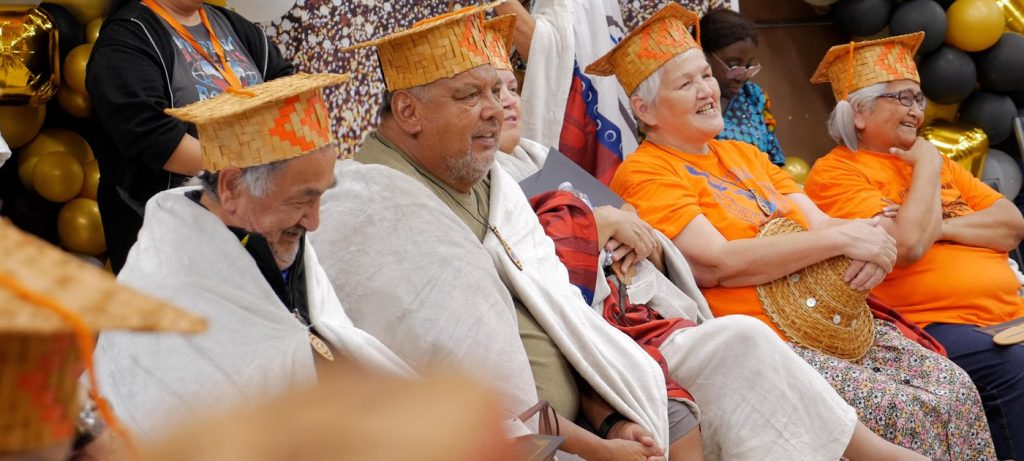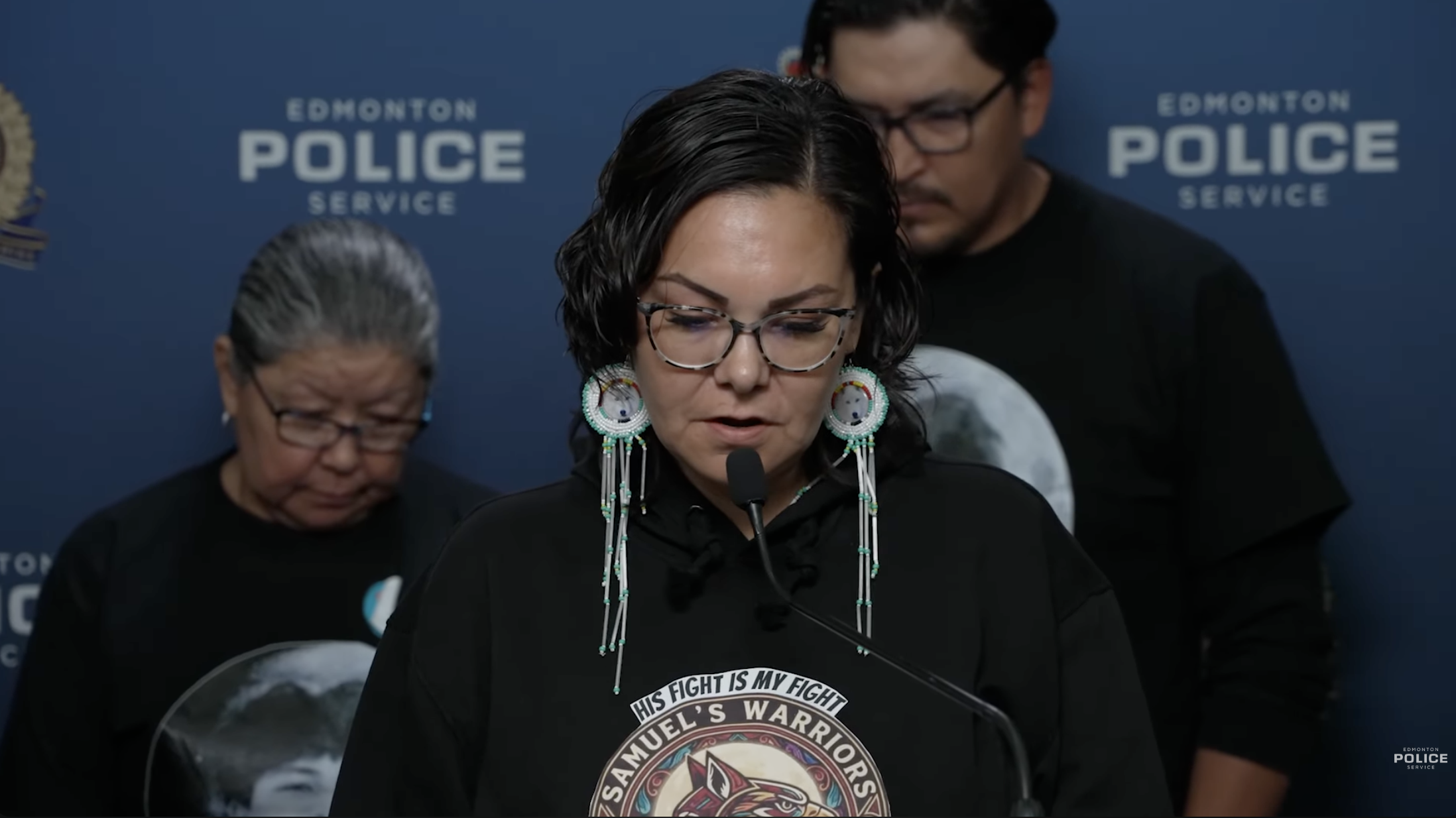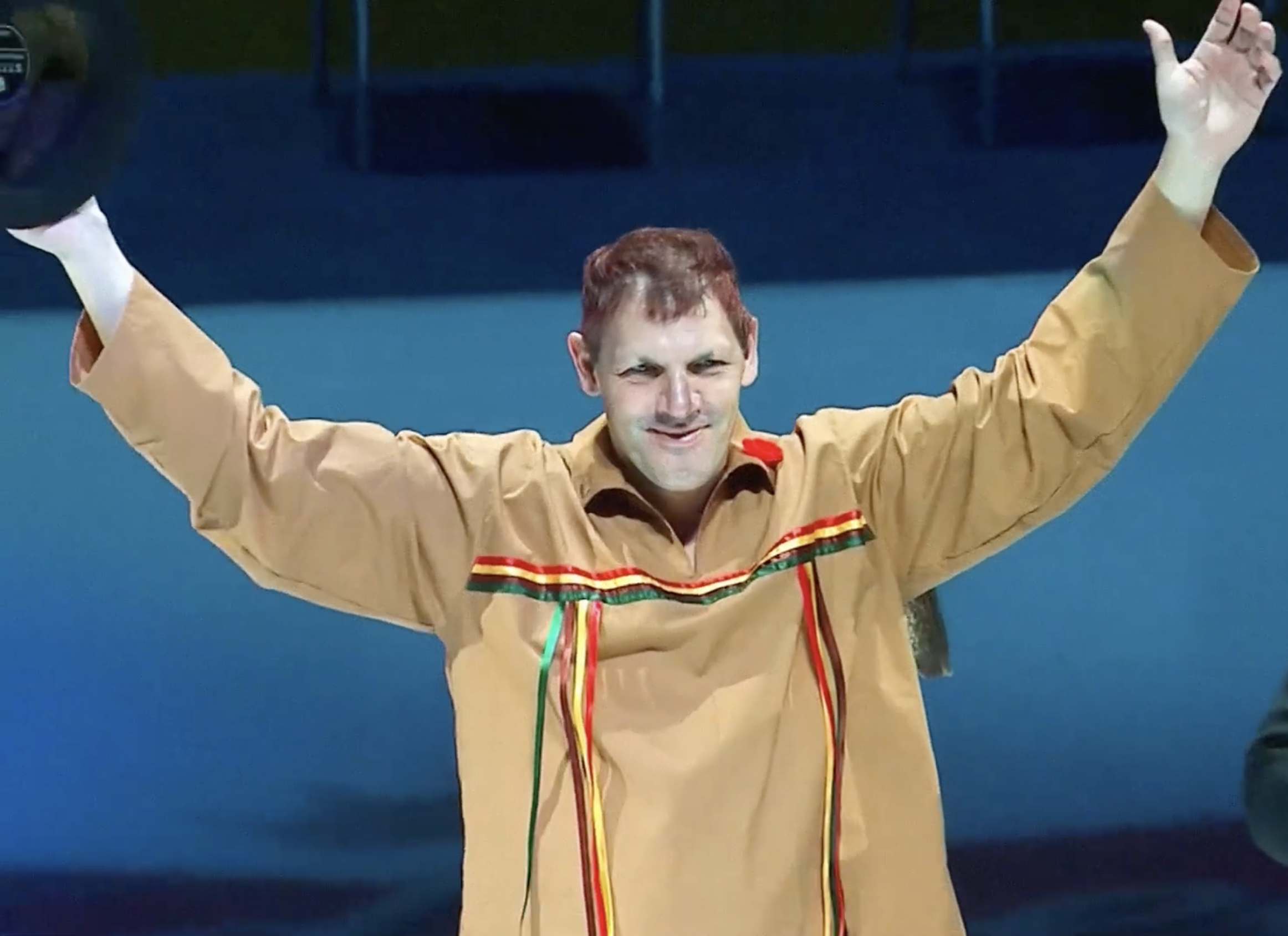shíshálh Nation holds grad ceremony to recognize residential, day ‘school’ survivors
The event honoured the life experiences and strength of survivors, with about 50 people being presented with certificates and cedar caps: ‘We see you, and we see how hard you worked’


This story was originally printed in the Coast Reporter and appears here with minor style edits
In a moving and unprecedented ceremony held at the shíshálh Nation Hall, residential and day “school” survivors were honoured with graduation certificates recognizing their life experiences as equivalent to secondary school completion.
The event on Sept. 17 was the result of years of collaboration between the Sunshine Coast Board of Education, the shíshálh Nation, and the syiyaya Reconciliation Movement.
It was inspired by a 2021 Orange Shirt Day video in which Elders Audrey Santiago and Val Bourne expressed a wish to be acknowledged for the education they were denied due to the impacts of residential and day “schools.”
That wish was taken to heart.
“It came from a survivor who never, ever graduated from residential school, and it was their dream to see if they can get an honourary graduate degree from the school district,” said Gary Feschuk, a shíshálh Elder and former hiwus who helped lead the vision for the event.
“To me, that was the best way to respect the survivors.”
Approximately 45 to 50 survivors attended, with another 40 to 50 named in honour.
“Just seeing the pride and their smiles and their faces was priceless,” Feschuk said. “They got recognized, similar to how our high school graduates get recognized every year.”
Amanda Amaral, chair of the Sunshine Coast Board of Education, said the ceremony was about affirming survivors and educating the public.
“This has been something that the board has been in discussion about since we added truth and reconciliation as a standing item at our education committee,” said Amaral.
The ceremony blended traditional graduation elements with shíshálh cultural practices.
“They were in blankets with caps and gowns. The Red Serge brought them in,” Amaral said. “There were openings with drumming and song and recognition, and then we honoured those who had passed, who had family members who wanted their experiences recognized.”
The ceremony also featured local art: cedar grad caps woven by shíshálh artist Jessica Silvey and her team.
“We were all weaving like crazy,” Silvey said. “It was just so amazing and so healing … the smiles, the pride on people to receive a hat and blanket. It was just so emotional.”
Silvey described the event as “spectacular” and “overwhelming,” noting the presence of multiple generations supporting their loved ones.
“To witness the survivors stand up and be honoured … just to see their reaction and to hear their speeches, some of those survivors were just so raw and honest,” she said. “It was just something that will never happen again.”
xwash (Steven Feschuk), shíshálh Nation’s Protector of Culture, spoke about the importance of keeping the emphasis on survivors.
“We didn’t want to lose focus on what was really important,” he said. “It started with the survivors and their experiences, and honouring them and making sure we’re doing this right.”
The ceremony was supported by a wide network of contributors, including syiyaya facilitators, school district staff, community members, and cultural leaders.
According to the school district, “Much of the vision for how the ceremony should go was created by Chief Garry Feschuk, supported and facilitated by his son, Xwash (Steven Feschuk), and facilitated by Nanika Paul of the shíshálh Nation Cultural Department.”
As Silvey put it, “To receive a diploma at this stage in their life … It’s nice to say, ‘We see you, and we see how hard you worked, and we see how hard you battled through all of that, and that you came out the other side, and you’re really brave and strong.’”
Author
Latest Stories
-
‘Bring her home’: How Buffalo Woman was identified as Ashlee Shingoose
The Anishininew mother as been missing since 2022 — now, her family is one step closer to bringing her home as the Province of Manitoba vows to search for her
-
Samuel Bird’s remains found outside ‘Edmonton,’ man charged with murder
Officers say Bryan Farrell, 38, has been charged with second-degree murder and interfering with a body in relation to the teen’s death
-
Book remembers ‘fighting spirit’ of Gino Odjick, hockey’s ‘Algonquin Assassin’
Biography of late Kitigan Zibi Anishinabeg left winger explores Odjick’s legacy as enforcer in the rink — and Youth role model off the ice













